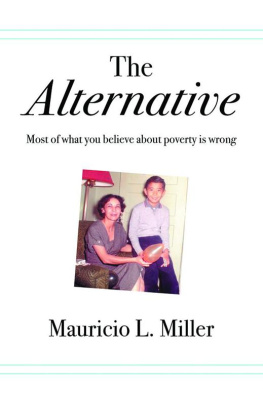Mauricio Archila Neira - Social Protests in Colombia
Here you can read online Mauricio Archila Neira - Social Protests in Colombia full text of the book (entire story) in english for free. Download pdf and epub, get meaning, cover and reviews about this ebook. publisher: LEXINGTON BOOKS, genre: Politics. Description of the work, (preface) as well as reviews are available. Best literature library LitArk.com created for fans of good reading and offers a wide selection of genres:
Romance novel
Science fiction
Adventure
Detective
Science
History
Home and family
Prose
Art
Politics
Computer
Non-fiction
Religion
Business
Children
Humor
Choose a favorite category and find really read worthwhile books. Enjoy immersion in the world of imagination, feel the emotions of the characters or learn something new for yourself, make an fascinating discovery.

- Book:Social Protests in Colombia
- Author:
- Publisher:LEXINGTON BOOKS
- Genre:
- Rating:3 / 5
- Favourites:Add to favourites
- Your mark:
- 60
- 1
- 2
- 3
- 4
- 5
Social Protests in Colombia: summary, description and annotation
We offer to read an annotation, description, summary or preface (depends on what the author of the book "Social Protests in Colombia" wrote himself). If you haven't found the necessary information about the book — write in the comments, we will try to find it.
Social Protests in Colombia — read online for free the complete book (whole text) full work
Below is the text of the book, divided by pages. System saving the place of the last page read, allows you to conveniently read the book "Social Protests in Colombia" online for free, without having to search again every time where you left off. Put a bookmark, and you can go to the page where you finished reading at any time.
Font size:
Interval:
Bookmark:
Mauricio Archila Neira is full professor of history at the Universidad Nacional de Colombia. He is also a researcher at the Centro de Investigacin y Educacin Popular (CINEP). He has published extensively on the making of the working classes and social movements in Colombia.
Fortunately, I count on the logistical and academic support of Centro de Investigacin y Educacin Popular (CINEP); I thank its management and members who have listened patiently and contributed with pertinent criticism to the progress and results of this research. I also acknowledge the funding provided by CINEP for the translation of this book. I am also very grateful to the research group on social movements, to which I belong and whose composition has changed over the last fifteen years, during which time each of its members has left a mark on the collective work. I would especially like to highlight the selfless support I have received from Martha Cecilia Garca, Esmeralda Prada, and Alvaro Delgado for providing me with their databases for this research. I also owe Martha Cecilia her company during the dark moments that this work went through as well as the times of recognition and happiness that we have also experienced. Emperatriz Becerra and Jorge Ivn Gonzalez were of great assistance in developing the statistical part of this publication. I must also thank the seventeen intervieweeswithout their testimonies it would have been difficult for me to understand what happened in Colombia in the thirty-three years studied.
I am very fortunate to be a professor at Universidad Nacional de Colombia, which allowed me to do the research that gave rise to this book and with which I was promoted to Full Professorthe highest academic rank of the alma mater. During the course of the research, I was comforted by the support of colleagues in the Department of History, some of whom are currently retired. Other colleagues from the university and several other educational institutions have also contributed valuable criticisms to the progress and results of the research, and I would like to thank them, even if some of them now do not share what I write in these pages or are no longer among us.
The students of my history courses in those years also contributed to this research by asking questions and making not a few incisive comments on the advances I gave them. This is still happening today; although they are increasingly critical of my theoretical approaches and methodological procedures, they continue to demand that I refer to this book for discussion in classes and seminars. One of those former students, A. Ricardo Lpez-Pedreros, now a professor at Western Washington University, was the one who encouraged me to have this book translated. I am especially grateful to him. For this English edition, I thank translator Camilo Ordoez Zambrano and his collaborator Santiago Sotelo Ardila for their thorough job. I also want to thank Nicolette Amstutz and Jessica Tepper at Lexington Books for their support in the production of this book.
Every book has its history, and Social Protests in Colombia is no exception to this rule. Originally published in Spanish in 2003, five years later the last reprint was issued in the same language, which soon sold out, as had happened with the previous issue. In 2004 the book was awarded the Colombian prize in Social Sciences by the Alejandro Angel Escobar Foundation. Since 2008 I have vacillated between publishing it as a digital book and reprinting it to meet a demand that temporarily found a way through photocopies or PDFs on the web. I finally agreed to issue a second edition in Spanish sponsored by Siglo del Hombre Editores in March 2018. At the same time I am presenting this translation to the English-speaking public. For this edition I decided to make some changes to the original structure and content of the work, besides some minor changes and translation adjustments. Therefore in the introduction I changed the section devoted to the Colombian literature for an actualized balance of the production on social movements, especially in Latin America. The first chapter of the Spanish edition, which was a historical context of the Colombian protests, was completely suppressed. The same happened with a statistical analysis at the end of . Also, I consider it convenient to write this epilogue to the English edition in order to relate the content of Social Protests in Colombia to recent times and evaluate its validity.
In fact, many things have happened from 1990, the year of completion of the history that I reconstruct here, to the present. It would be impossible to summarize the profound changes that Colombia and the world have undergone in a few lines. The social sciences themselves have taken notable turns that we did not even foresee at the beginning of the new millennium. New theoretical approaches to social movements have emerged, others have consolidated, and some have lost momentum or at least followers. The literature on the subject for the Colombian case has continued steadily, and we have
Social Protests in Colombia studies a period of Colombian life framed between the pact that created the National Front in 1957 and the pact that convened the 1991 Constituent Assembly. Well, the new constitution certainly opened the door to a national transformation, but in divergent directions. On the one hand, it proclaimed the Social State, enshrining new rights especially related to the cultural and social diversity of the country; but on the other hand, it legitimized the deepening of the neoliberal openness, which had already been insinuated since previous decades.
In line with the global trends that marked the end of the truly existing socialism and the crisis of critical thinking, neoliberalism spread across the globe, especially where a return to democracy was taking place, as was the case in Latin America and Eastern Europe. Colombia did not escape these global processes, and by the beginning of the 1990s it had decidedly embarked on trade openness that ended up being more inward-oriented than outward-oriented. In other words, the importation of goods from abroad with low tariffs was allowed, but there was little incentive for our products to enter the world market. This destroyed not only the import substitution industrialization model that had guided us since the 1930s but also much of the agricultural production thatliterallyfed the domestic market. Thus, the economy returned to primary extractive activities, especially mining, energy, and agriculture, with the consequent damage to the environment and the impact on the surrounding communities. But also the labor regime was dismantled, which had been agreed upon with great effort between workers, employers, and the State. Labor flexibilization and outsourcing (Law 59 of 1990) were put on the agenda, allowing the informal labor market to increase. This was coupled with the privatization of many strategic public enterprises and the general dismantling of the State. All of this resulted in workers being fired, some of them very qualified; this increased not only unemployment but also the levels of poverty and even destitution. The union membership rate also declined dramatically from 15 percent in the 1970s to less than 5 percent in recent times. The social services, under the guise of the extension of coverage and the overcoming of bureaucratic inefficiencies, changed their logic of subsidies to demand instead of supply, especially in healthcare (Law 100 of 1993). Public higher education has also suffered from lower funds allocated by the State, which have been directed towards scholarship-loans for prospective students to apply to private colleges and not properly to the best accredited universities.
This State, blurred in its economic intervention, was still the guarantor of public order in the national territory, but now in defense of regulation by the laws of the market. Even in its basic function as the repository of the legitimate use of force, it started to fail and to be replaced by illegal armed groups, either insurgents or paramilitaries, in some regions. Paramilitarieswho gained notoriety since the 1980s and who were increasingly linked to drug traffickingmurdered countless opposition social and political leaders, especially in the 1990s and early 2000s.
Font size:
Interval:
Bookmark:
Similar books «Social Protests in Colombia»
Look at similar books to Social Protests in Colombia. We have selected literature similar in name and meaning in the hope of providing readers with more options to find new, interesting, not yet read works.
Discussion, reviews of the book Social Protests in Colombia and just readers' own opinions. Leave your comments, write what you think about the work, its meaning or the main characters. Specify what exactly you liked and what you didn't like, and why you think so.









